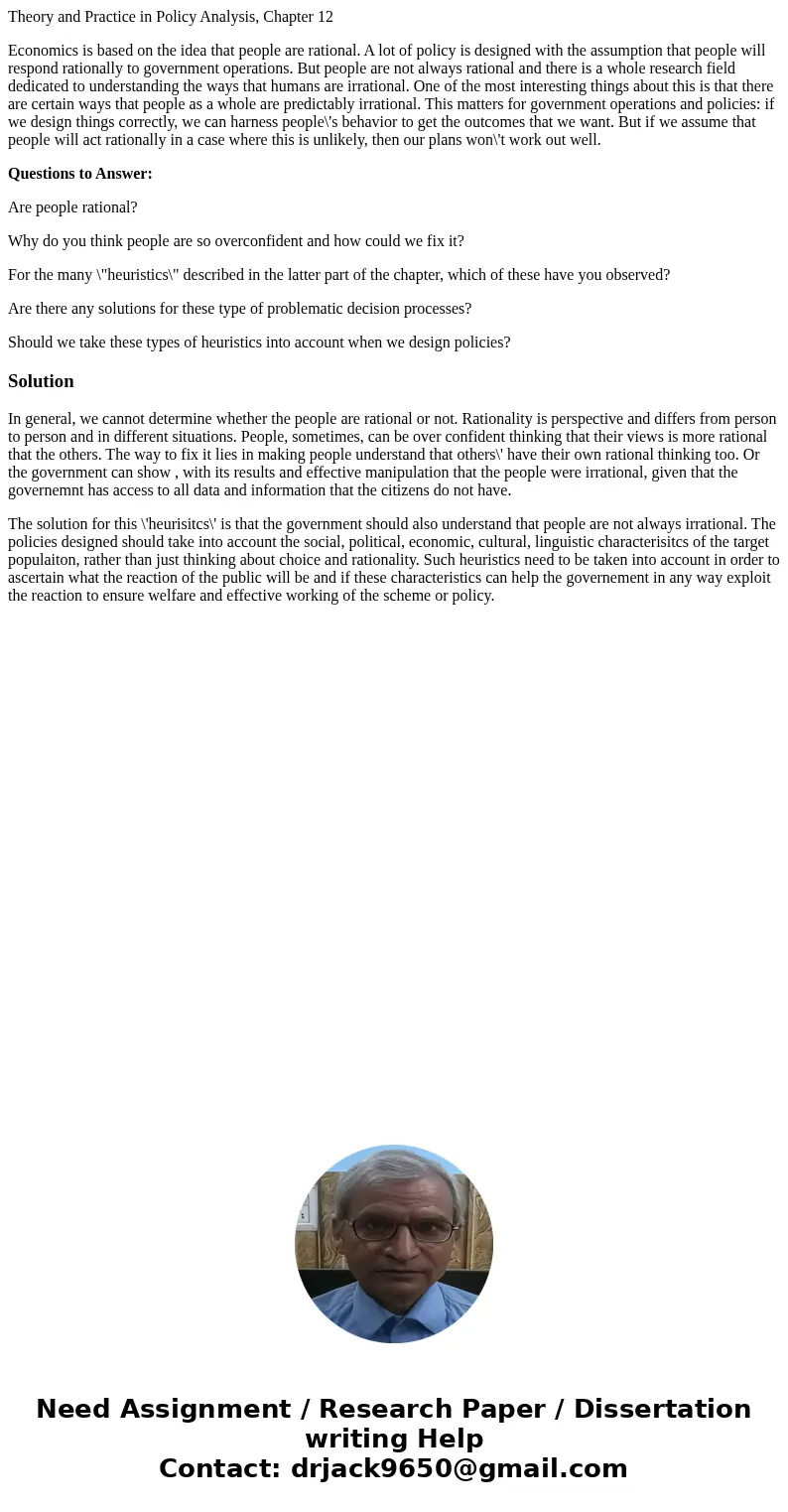Theory and Practice in Policy Analysis Chapter 12 Economics
Theory and Practice in Policy Analysis, Chapter 12
Economics is based on the idea that people are rational. A lot of policy is designed with the assumption that people will respond rationally to government operations. But people are not always rational and there is a whole research field dedicated to understanding the ways that humans are irrational. One of the most interesting things about this is that there are certain ways that people as a whole are predictably irrational. This matters for government operations and policies: if we design things correctly, we can harness people\'s behavior to get the outcomes that we want. But if we assume that people will act rationally in a case where this is unlikely, then our plans won\'t work out well.
Questions to Answer:
Are people rational?
Why do you think people are so overconfident and how could we fix it?
For the many \"heuristics\" described in the latter part of the chapter, which of these have you observed?
Are there any solutions for these type of problematic decision processes?
Should we take these types of heuristics into account when we design policies?
Solution
In general, we cannot determine whether the people are rational or not. Rationality is perspective and differs from person to person and in different situations. People, sometimes, can be over confident thinking that their views is more rational that the others. The way to fix it lies in making people understand that others\' have their own rational thinking too. Or the government can show , with its results and effective manipulation that the people were irrational, given that the governemnt has access to all data and information that the citizens do not have.
The solution for this \'heurisitcs\' is that the government should also understand that people are not always irrational. The policies designed should take into account the social, political, economic, cultural, linguistic characterisitcs of the target populaiton, rather than just thinking about choice and rationality. Such heuristics need to be taken into account in order to ascertain what the reaction of the public will be and if these characteristics can help the governement in any way exploit the reaction to ensure welfare and effective working of the scheme or policy.

 Homework Sourse
Homework Sourse